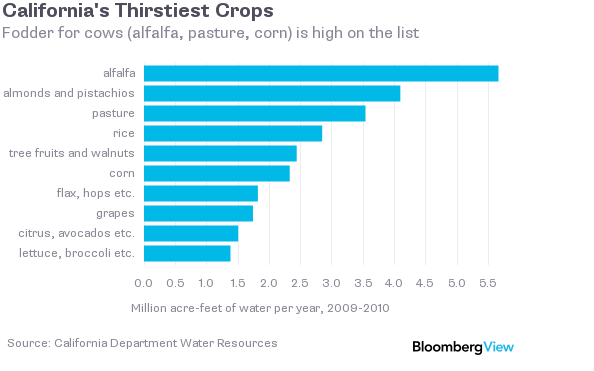The One Thing Chipotle Doesn't Want You to Order

By:
Chipotle posted its Q2 sales earnings on Tuesday following a recent Morgan Stanley report that found beef costs are weighing down the chain as well as other packaged food providers.
In 2014, Chipotle executives said during a conference call that steak and barbacoa burritos cost the business a dollar more to make than chicken or vegetarian burritos. Though consumers pay more for steak and barbacoa items thanks to a price increase, CFO John Hartung told CNN Money earlier this year that these orders hurt the company.
"We lose money any time someone comes in and thinks about getting chicken and gets steak instead," he said.
According to NBC News, California's extensive drought was "a perfect storm of drought, disease and demand." As we reported before, the state of California is currently experiencing a significant drought and is responsible for around half the country's vegetable and fruit supply. ATTN: reported in the spring that it takes nearly 75 gallons of water to grow a pound of avocados, and avocados require very little water compared to other crops. Looking at California Department of Water Resources data, Bloomberg found the top 10 crops that need the most amount of water, with crops consumed by cows ranking high on the list:
 Bloomberg View - bloombergview.com
Bloomberg View - bloombergview.com
The cow diet, which consists of alfalfa, corn, and pasture, requires lots of water. As Bloomberg described it, "[T]the cattle themselves don't consume much water -- direct water use by livestock farmers in California seems to be quite modest... People eat things that take lots of water to grow. People also eat cattle, and drink their milk. Still, it does seem important to understand that raising cattle takes up more of California's water than any other activity."
When Chipotle said in a financial report last year that they would consider putting guacamole sales on hiatus due to increasing costs of avocados, many consumers expressed concern on the Internet. The pervasive feeling of doom made sense considering Chipotle goes through nearly 100,000 pounds of avocados everyday.
"Increasing weather volatility or other long-term changes in global weather patterns, including any changes associated with global climate change, could have a significant impact on the price or availability of some of our ingredients," the filing stated.
But Chipotle spokesperson Chris Arnold went on to tell NPR that there was nothing to be so worried about, as the report was only meant to spread awareness of potential issues for the chain.
"There is no looming 'guacapocalypse' and I wouldn't read too much into this," Arnold wrote in an email to NPR. "With regard to avocados, we saw similar issues in 2011 and incurred higher prices for the avocados we used, but never stopped serving guacamole. The sky is not falling."
Climatologist Eric Holthaus, on the other hand, seemed alarmed that it took a possible guacamole crisis for many to finally wake up to the problem of climate change, which contributes to the water shortage and consequent avocado issue.
Other ways cattle can hurt the environment
It doesn't end with cattle eating habits either. In 2014, the Proceedings of the National Academy of Sciences released a study that found that beef requires almost 30 times more land, uses 11 times more irrigation water, and sends out five times the amount of greenhouse gases than the average animal product or meat.
"[M]inimizing beef consumption mitigates the environmental costs of diet most effectively," the report states.
Studying greenhouse gas emissions, researchers also considered the methane that cattle release into the atmosphere when they defecate or have gas. Scientists estimate that sheep and cattle account for around 20 percent of global greenhouse gas emissions.
